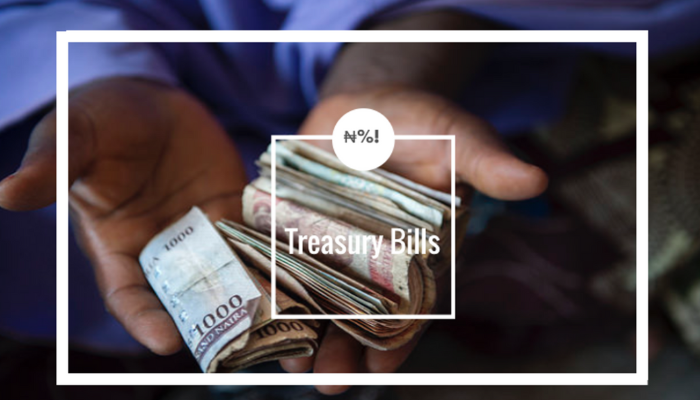The 364-day treasury bills stop rates spiked to 19% per annum, the first clear signal that the central bank was moving towards a hawkish monetary policy. The 182-day and 91-day bills also rose to 18% and 12.2%.
The rate hike is seen as a major monetary policy move aimed at fighting the depreciation of the naira and sucking out the excess money supply to combat galloping inflation.
At the last auction on the 29th of January, the interest rates for these maturities were recorded at 5% for the 91-day bills, 7.15% for the 182-day bills, and 11.54% for the 364-day bills, respectively.
Nairametrics had reported earlier that the central bank was likely to offer a higher interest rate for treasury bills, a move seen as a way to stifle the depreciation of the naira.
A total of N1 trillion was on offer but was oversubscribed as investors staked a whopping N2.3 trillion. The one-year bill on offer for N600 billion recorded a massive N1.8 trillion subscription out of which the central bank sold N908.7 billion
Details of the offer
91 days – Investors staked only N39.9 billion for the 91-day bill compared to the N200 billion offered by the apex bank. The range of interest rates bid was between 7% and 17.2%. The central banks sold the N39.9 billion staked.
182 days – Investors also undersubscribed the offer, staking just N76.8 billion out of the N200 billion offered by the central bank. The central bank allotted only N51.3 billion. The range of bids was 4% to 19.9%. The stop rate was 18% for treasury bills.
364 days – The one-year bill witnessed a three-fold oversubscription of about N1.8 trillion compared to the N600 billion that was on offer. The apex bank allotted N908.7 billion with stop rates of 19%. Investors bid between 13% and 29.9% as interest rates.
The higher-end bid of 29.9% which is slightly higher than the inflation rate, indicates where investors want rates to be. Some analysts who spoke to Nairametrics opine rates will likely continue to rise in the coming weeks as CBN intensifies efforts to combat exchange rate depreciation.
What this means
As stated in our story earlier in the day, investors signaled that the apex bank was looking to increase interest rates in today’s auction in line with market expectations.
- By tightening monetary policy through higher interest rates and larger treasury bill auctions, the CBN aims to curb inflation and stabilize the exchange rate, thereby fostering a more balanced economic environment.
- The decision to significantly raise the volume of treasury bills auctioned, especially for the 364-day tenure, underscores the CBN’s commitment to addressing the liquidity surplus in the economy.
- By absorbing excess liquidity, the CBN endeavors to counter inflationary pressures and support the naira’s value, which is crucial for economic stability and growth.
Nigeria is now in a new phase for interest rates as most lending rates will also be adjusted higher to avoid negative yields.
- The impact will likely be felt on short-term debt securities such as commercial papers with companies set to absorb increases in their finance cost.
- On the flip side, the exchange rate is expected to stabilize helping companies avoid exchange rate losses.
- The chances of these policies working will largely depend on whether foreign portfolio investors see this as an enticing enough return to inflow forex into the country.

